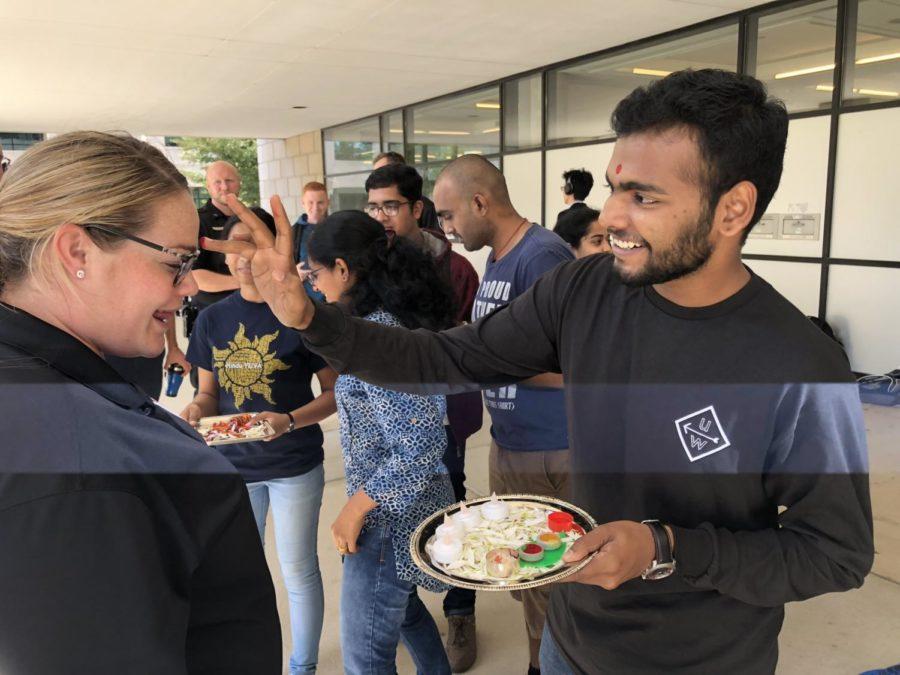Iowa State’s Hindu YUVA students offer a symbol of thanks and protection to the ISU PD
Iowa State’s Hindu YUVA and ISU PD celebrate Universal Oneness day on August 31, 2018.
August 31, 2018
Iowa State’s Hindu YUVA students offered a sign of thanks and gratitude to the Iowa State Police Department Friday, while also showing and teaching aspects of their culture.
Hindu YUVA celebrated Universal Oneness Day on Friday at Parks Library. Universal Oneness Day comes from an ancient Hindu festival known as Rakshabandhan. Rakshabandhan was traditionally celebrated by a sister tying a string called Rākhī around the wrist of her brother.
The Rākhī is meant to protect the wearer from troubles they may face in life, as well as symbolize love and a promise for the brother to protect his sister.
Universal Oneness Day has been celebrated in the United States since 2004, and has a broader scope by taking a community based approach. Iowa State’s Hindu YUVA group celebrated by tying Rākhī to ISU PD officers. The Hindu YUVA held another ceremony for Ames Police officers at the Ames Police Headquarters.
President of Hindu YUVA at Iowa State and graduate student in electrical and computer engineering, Viraj Shah, said Universal Oneness Day “is all about showing gratitude to the people who protect us.”
“Here our protectors are police officers and firefighters, so we started with them,” Shah said.
The event was first held in Ames in 2016 and was held for the second time this year, according to Shah. Shah said he hopes to cement this festival as a yearly tradition in the Iowa State and Ames community.
Members of Hindu YUVA tied Rākhī onto the officers and then offered them a small Indian sweet, similar to the traditional proceeding of the festival.
ISU PD Engagement and Inclusion Officer Natasha Greene spoke about being able to learn about Hindu culture and traditions.
“Students are here to learn, but faculty and staff are also here to learn about new ideas, new cultures and experiences,” Greene said. “Any time we can learn from our student organizations I think that’s powerful.
“One of our goals is to interact with students whose identities might make them feel less comfortable with law enforcement, or are less represented on campus,” Greene said. “So this is just one example of many of us trying to figure out ways to find commonality, respect each other’s cultural backgrounds and learn a little bit more.”







